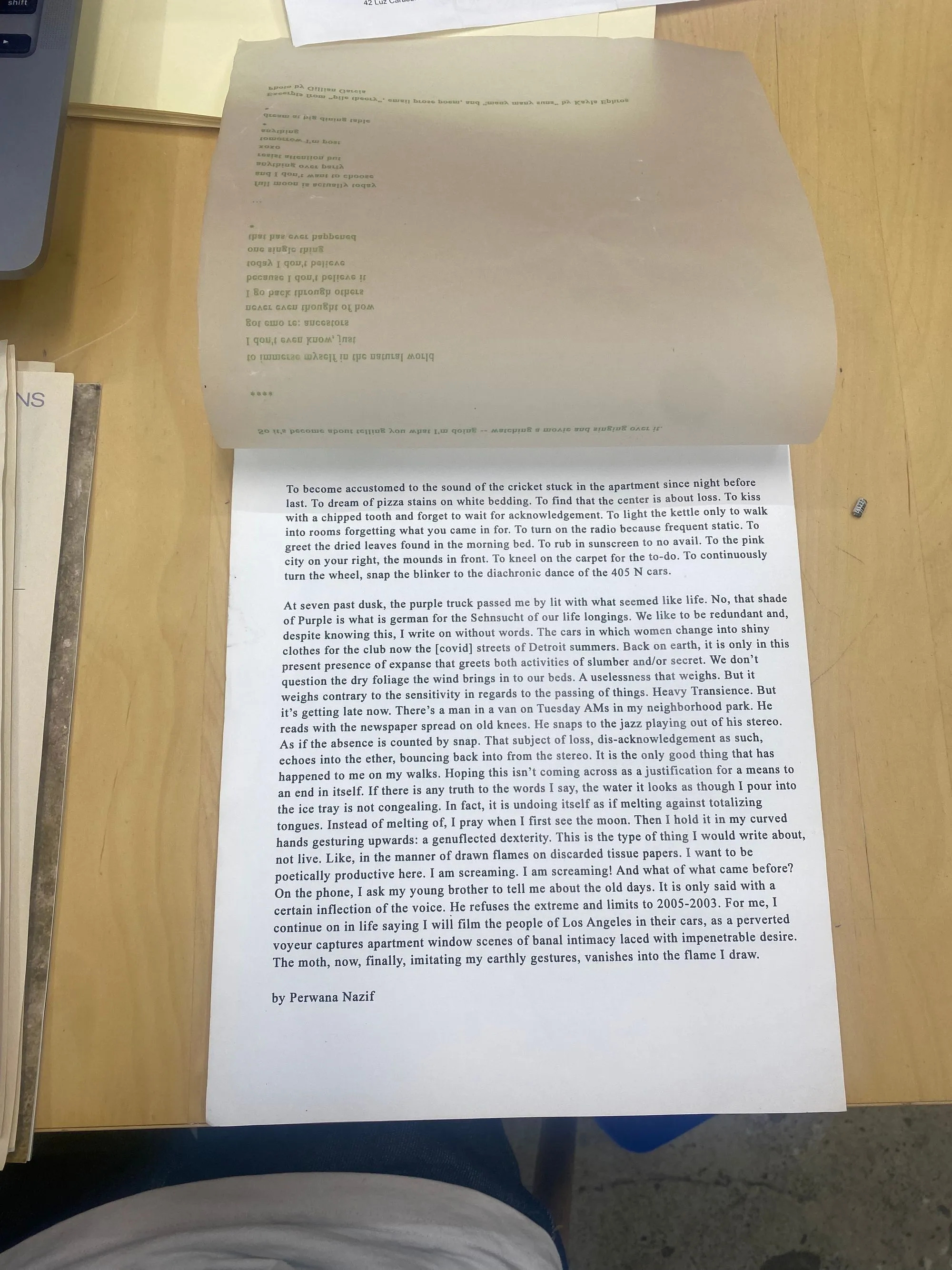Queer Correspondence #5

Continuing a series of solo projects for which artists have been invited to produce artworks to be distributed by mail, the fifthQueer Correspondence commission by Iranian Los Angeles-based artist, writer and filmmaker Gelare Khoshgozaran comprises a new film, distributed in a bespoke USB drive with a printed postcard. Shot on Super 8 film and digitised and edited over the past four months, Khoshgozaran’s film unfolds a series of vignettes that toy with the unstable ground between fact and fiction. Though this is a strategy reminiscent of much of the artist’s practice, it is here further entangled in a moment when the feeling of living within a dream –or a nightmare– transverses reality at a speed and consequence greater than most of our untethered imaginations.
In the opening sequence of MEN OF MY DREAMS (2020), soft tidal waves encroaching over rocks give way to a domestic scene of making tea. We first see a kettle boiling water on a hob and then a thin waist glass, carefully set in an otherwise mostly empty frame, as it is being filled with black leaf tea. Despite its ritualistic value (the making of tea is as much a culture as it is, itself, a place), little do we know where this place is, nor from when it is. The black and white grainy footage initially obfuscates our attempts of locating these moments within a particular geography or time, albeit Khoshgozaran does not leave us hanging for long.
From this seemingly mundane idyll, the artist soon places us in the streets of Los Angeles, where Khoshgozaran lives “since once upon an August day a one way ticket”. Unlike the sun-sunken, star-studded and palm-filled scenes that are often associated with the city of dreams, Los Angeles here appears in a dystopian aftermath of social unrest. Shooting with her camera while driving through various streets, the artist captures an assembly of military trucks and vandalised store fronts, including one where large graffiti-sprayed letters spell out ACAB (“All Cops Are Bastards”), which brings us closer to the ‘when’. It is May 30th 2020; the day after a protest in Central Los Angeles in response to the murder of George Floyd by asphyxiation from the choke-holding knee of police officer Derek Chauvin. Preceded by several nights of rioting, it is the first organised protest in the city and it will be accompanied by many more; in California, throughout the country and worldwide.
Khoshgozaran’s opening images depict a hostile environment in civil conflict; an experience all-too-familiar to her growing up in Tehran during the Iran-Iraq war, and living through significant civil unrests in 1999 and the 2009 uprisings, when the artist migrated to the US. Creating an image of the West that is seemingly at odds with the type of saviour narratives that are often politically pushed by countries where people exile to and/or seek asylum, the artist collapses these places and times together, bringing us closer to her experience of reality as a muddy dream-like state; an understanding of the world as a place wherein, in Khoshgozaran’s very own words, everything is so ruined “that I feel at home anywhere”.
Over this backdrop, which is made even more poignant by the context of a global pandemic, the artist delves into a revision of her engagement with cultural and literary history as a way into grounding herself with the tools and means that she associates with survival –those that come from the memory of a war, the passing of long spans of time at home and of having to find one’s own voice under the stronghold of fascist oppression.
Thinking about this past as being materially present in fragments of knowledge carried by the body, MEN OF MY DREAMSdelves into Khoshgozaran’s personal history by invoking a group of men that surrounded the artist through their writing, singing, filming and activism while growing up in Tehran and moving to the US, including: writers Edward Said and Roberto Bolaño; poet Federico Garcia Lorca; filmmaker Pier Paolo Pasolini; singer Farhad Mehrad; Iranian journalist and poet
